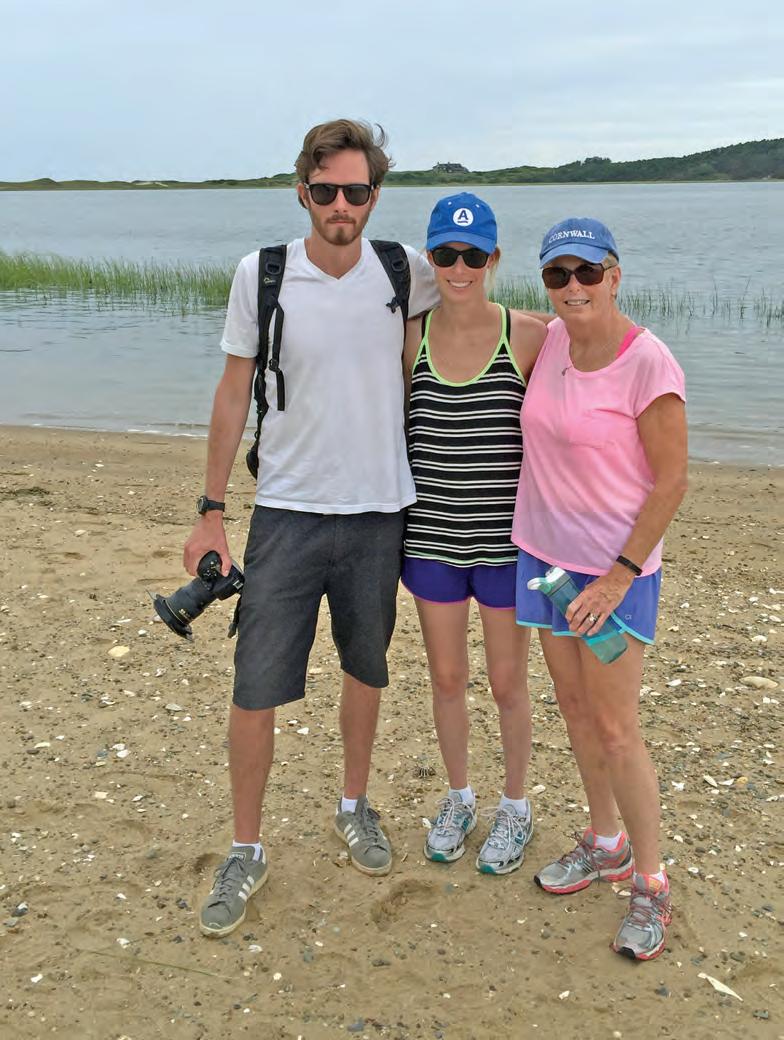
4 minute read
A Life-extending Experiment
Cancer kept at bay with copper-chelating treatment
By Sarah Pearson
A cancer diagnosis of any kind is concerning, but when you hear that you have stage-four breast cancer, it can feel like a death sentence.
“When you’re given a diagnosis of stage four, you really think, OK, I’ve got a few years, and then I’m done,” says Martha Bruehl, 67, of Cornwall, Conn., who discovered a lump in her left breast in 2004. “This has been 20 years.”
“I’ll meet people who say, ‘Oh, I was just diagnosed with breast cancer,” Bruehl says. “And I’ll say, ‘Well, 20 years at stage four, and I’m still here,’ and that’s because of all the new medications and treatments and this clinical trial.”
She discovered a lump in her left breast in 2004, just months after she’d gone for a mammogram in the fall of 2003 that had come back normal. Her doctor sent her for another mammogram, where they noticed something suspicious. A radiologist did an inconclusive biopsy, but they advised her not to ignore it.
So, Bruehl saw Dr. Barbara Ward, a breast surgeon in Greenwich, Conn., who did a lumpectomy and sentinel node biopsy. A PET scan and CAT scan followed.
Breast cancer cells were discovered in her lymph nodes and liver, resulting in the stage-four diagnosis.
The five-year survival rate for breast cancer cases that have spread to lymph nodes and liver is 31% but rises to 99% for cases that are still isolated to the breast.
Bruehl completed six months of chemotherapy and a follow-up PET scan showed the metastatic cancer cells were gone from her liver.
For the next three years, Bruehl followed up with adjuvant therapy and regular scans. But then, the cancer cells returned.
In 2007, Bruehl had surgery to remove a third of her liver, plus additional chemotherapy treatments.
During this time, she’d been referred to Dr. Linda Vahdat, who had a trial for a copper-suppressing agent (tetrathiomolybdate, known as TM). Bodies need copper for blood vessel growth, but it was found to have a connection to the metastasis of cells. By reducing the copper, the likelihood of cancer cells’ spread was decreased.
Bruehl visited Dr. Vahdat monthly in New York, then later in Connecticut for blood tests, a breast exam, and the next dose of TM.
In 2022, Dr. Vahdat was appointed deputy director of the Cancer Center and section chief of medical oncology at Dartmouth Health. Bruehl is no longer part of the study on TM, but continues to take it and see Dr. Vahdat every three months, with calls and texts between checkups.
“I’ve been off trial for probably six years, but she still keeps me as a patient because I need somebody to give me the medication. I need somebody to monitor it,” Bruehl says.
Though she’s also had unrelated uterine and thyroid cancer, caught early thanks to regular scans, Bruehl’s breast cancer has not returned since she’s been taking the copper-chelating drugs.
“I just saw another physician who was questioning the trial, and he said, ‘Does it work?’ He didn’t know anything about it,” Bruehl says. “I said, ‘Well, I’m alive and I’m here, so it’s got to work somehow.’"
When she was diagnosed, Bruehl says she didn’t know anyone else with breast cancer, so she joined a support group that she stayed involved with for more than 15 years. One silver lining of cancer, she says, is the friends she wouldn’t have otherwise made. She’s also fundraised through the American Cancer Society and tried to be a resource to others diagnosed with breast cancer.
“When you’re diagnosed with breast cancer, and you’re having the chemo, that’s all you think about. And after a while, when you’re finished with the chemo, you realize, ‘Oh, I haven’t thought about it for a couple of days,’ and it gets more put into the back of your mind,” Breuhl says. “Now I don’t really think about it very much. … It’s in my past.”
These days, Bruehl is retired from spending 30 years as a school nurse. Her son and daughter moved close to her during COVID, and she stays active swimming, walking, knitting and babysitting her grandchildren, ages 1 and 4.
“I’m happy I met her (Dr. Vahdat). I’m happy that she took me on and kept me on as a patient,” Bruehl says. “And I’m happy of all her knowledge of what she’s doing with this trial, which she’s restarting again at Dartmouth (Health) for triple-negative breast cancer patients.”











